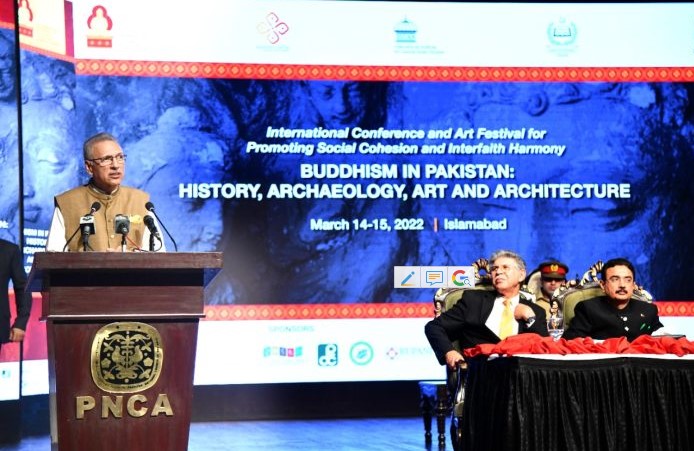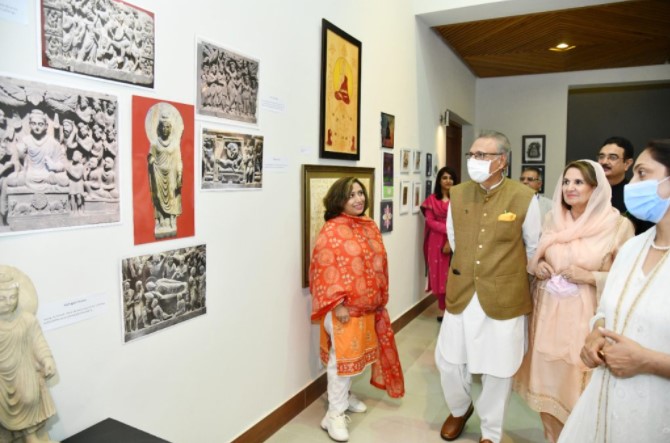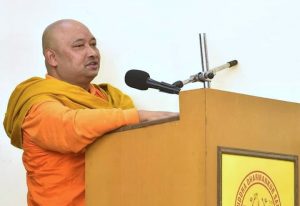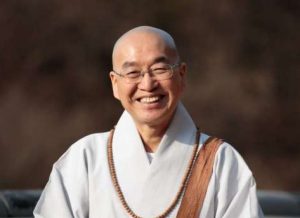Pakistan’s Federal Ministry of Education has said that Buddhism and Zoroastrianism will be added to the nation’s religious studies curriculum, the Single National Curriculum (SNC). Five other minority religions will be added as well: Baha’i, Christianity, Hinduism, Kalash, and Sikhism. The ministry also announced that experts on these religions would be sought to provide assistance in creating the curricula.
The Single National Curriculum has been established as a uniform education system to provide equal educational opportunities to all people in Pakistan, irrespective of class or religious background.

The draft curriculum for Buddhism was accepted 4 March, while the others are still in process. The move marks the first time in Pakistan’s history that such a broad set of religious studies recommendations has been undertaken by the Ministry of Education.
Parshant Singh, a Sikh curriculum developer and the first Sikh officer of Punjab University, Lahore, said that Sikhs would represent the third-largest minority religion in Pakistan if Buddhists from the scheduled castes were excluded. While noting that no Sikhs represented their community as lawmakers, he added: “Still, we thank the government for involving minorities in designing their curriculum.” (Academia Magazine)
Peter Jacob, the director of the Centre for Social Justice (CSJ), described the inclusion of religious studies in the Single National Curriculum as a major achievement. He further said: “The holistic inclusion is a breath of fresh air. Finally, the government is addressing monolithic views and learning. Now we can go to parity. It’s a step forward.” (Academia Magazine).

Pakistan is a majority Muslim country, with some 96.4 per cent of the population following Islam. The majority of Pakistan’s Muslims belong to the Sunni sect, the largest sect of Islam in the world, while 10–15 per cent of Pakistan’s Muslims are Shia, according to data for 2009 from the Pew Research Center’s Forum on Religion & Public Life. A small sect of Islam called Ahmadiyyah, which originated in India, has as many as five million adherents in Pakistan, although exact details are difficult to determine due to the ongoing persecution of the sect in Pakistan.
Prof. Anjum James Paul, a member of the Ethics Review Committee of the SNC, said: “Some Muslim members of SNC review committee questioned the absence of the chapters of interfaith harmony in religious education. I argued to include it first in Islamic studies where there is no chapter on interfaith harmony.” (Academia Magazine).
Prof. Paul further stated: “Our books must be under the constitution of Pakistan that prohibits teaching a religion to students other than their own and the protection of minorities. Removing discrimination and biases is perhaps the most efficient and inexpensive way forward to improve the quality of education.” He added: “Inclusive education and religious diversity can ensure the return of peace in Pakistan.” (Academia Magazine).
For Buddhists in Pakistan, the move comes at a crucial time. There are few communities of Buddhist practitioners in the country, but a lack of places for worship and teachers has led some to worry that the religion could die out in the country.* Meanwhile, archeologists have unearthed several ancient Buddhist sites in the country in recent years, increasing interest among Buddhist scholars and practitioners in visiting the country.** In 2019, the government of Pakistan gave authorization to the Jogye Order of Korean Buddhism to establish a Buddhist temple at an ancient site in the country.***
In a conference this week, Pakistan’s president Dr. Arif Alvi said that Buddhism’s propagation to places such as Korea and Japan came by way of northern Pakistan, highlighting the role the country once played as a key nexus in the spread of the religion. In his address, he reportedly also said, “Buddha taught that in presence of worldly desires, there could not be a peace and this message was reflected in the image of fasting Buddha. The Buddhism stressed upon curbing of desires in life to becoming familiar with other basic human emotions.” (Associated Press of Pakistan)
According to the 2017 census, Muslims make up 96.2 percent of Pakistan’s population, Hindus 1.6 percent, Christians 1.59 per cent, Ahmadis 0.22 per cent, and other minorities 0.07 per cent.
* Pakistan’s Surviving Buddhist Communities in Danger of Extinction (BDG)
** UPDATE: Archeologists Detail Importance of Buddhist Artifacts Found in Pakistan (BDG)
*** Korea’s Jogye Order to Establish Buddhist Temple in Pakistan (BDG)
See more
Zoroastrianism & Buddhism added in SNC along with five other religions (Academia Magazine)
President for preservation of ancient sites, promotion of religious tourism (Associated Press of Pakistan)
Related news reports from BDG
1,800-Year-Old Buddhist Stupa and Relics Unearthed in Pakistan
Ancient Buddhist Temple Discovered in Pakistan
Jogye Order Confers Award on Pakistan’s Ambassador to South Korea
Archaeologists Unearth Ancient Buddhist Complex in Pakistan














